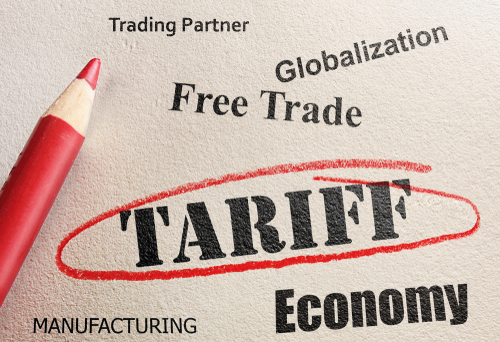The American Property Casualty Insurance Association (APCIA) outlined some of the impacts of President Donald Trumps proposal to increase tariffs on trade partners.

On Tuesday, a 10 percent additional tariff went into effect on imports from China. Further, Trump had signed an order calling for 25% tariffs on imports from Canada and Mexico, but those tariffs have been paused for 30 days as Canada and Mexico agreed to beef up border security.
APCIA provided some stats on the potential impact of these tariffs, if they all went into effect.
Currently, according to APCIA, about 6 out of every 10 auto replacement parts used in U.S. auto shop repairs are imported from Mexico, Canada, and China. If parts become more expensive, car owners will pay more each time they need something fixed. In addition, repairs would take longer if the supply chain does not provide parts from other countries. This would lead to storage fees and additional expenses, including rental cars. And insurers would need to pay more per claim.
Further, tariffs could also increase the price for new cars. According to Wolfe Research, the tariffs would likely raise the cost of new cars by around $3,000 due to higher manufacturing costs. Over 50 percent of all auto parts exported are imported to the U.S. from Mexico and Canada. The tariffs could increase the costs of all vehicles assembled in the U.S.
Also, the association noted that auto insurance is just beginning to stabilize after COVID, supply chain issues, and high inflation. This positive trend, however, could be undermined by tariffs, if they result, as expected, in increased costs to repair or replace cars and other property. That would lead to higher costs that would need to be reflected in auto insurance premiums.
In addition, tariffs on construction materials could increase construction costs as well as insurance costs that cover property loss or damage. This will significantly impact rebuilding after catastrophes, like the LA wildfires or Hurricanes Helene and Milton.
Additionally, APCIA estimates that the potential impact of the tariffs, if they are enacted, would increase claim costs for personal auto insurance alone by approximately $7 billion to $24 billion.
Similarly, commercial auto insurance claim costs are also expected to be significantly impacted. Under the assumption that the impact on the other lines of business is only 50 percent of the amount for personal auto, the potential total claim cost increase for all lines of business would be $10 billion to $36 billion.
The association also notes that fuel price increases from Canada would impact most consumer goods and services.
APCIA is the primary national trade association for home, auto, and business insurers.